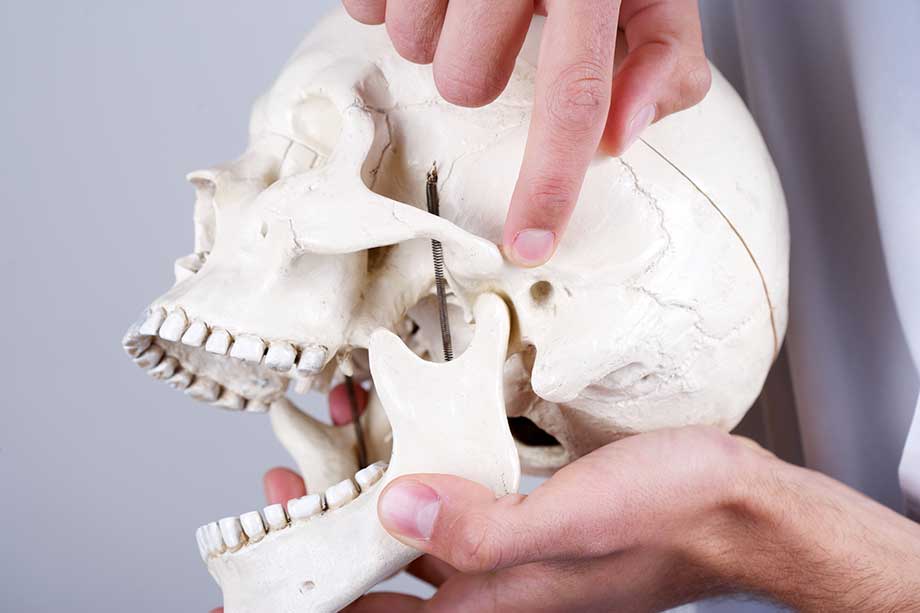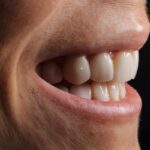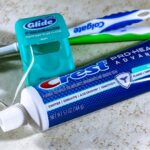Understanding TMJ and Its Symptoms
The Temporomandibular Joint (TMJ) plays a crucial role in everyday functions like eating, talking, and yawning, connecting the jawbone to the skull. People with TMJ disorders (TMD) experience discomfort due to the joint’s frequent use. Symptoms include:
- Pain in the jaw
- Difficulty chewing
- A clicking or popping noise when moving the mouth
- Jaw locking, making it hard to open or close the mouth
Pain can radiate from the joint to the face, neck, or shoulders, either spiking during specific activities or persisting as a dull ache. TMJ disorders can also cause ear pain and headaches.
Understanding these symptoms is essential for managing TMD through various treatments. Sufferers describe their experiences as another hurdle in daily life, and finding relief is about easing physical pain and reclaiming simple joys like conversation, eating, and smiling.
Homeopathic Remedies for TMJ
Causticum, Rhus Tox, and Silicea are effective homeopathic remedies for TMJ disorders. They provide a natural approach to addressing the multifaceted symptoms of TMD.
Causticum is suitable for those experiencing painful jaw stiffness and tightness, often due to joint degeneration from age or wear and tear. Rhus Tox helps individuals with severe joint stiffness, especially upon waking or after inactivity. The pain eases with gentle movement or heat application and is useful for TMJ resulting from rheumatic conditions or injuries.
Silicea is beneficial for TMJ influenced by rheumatic conditions, addressing pain that radiates from the jaw to other regions like the temples, potentially causing headaches. It supports the body’s natural processes to reduce inflammation and muscle spasms.
These homeopathic treatments not only ease pain and discomfort but also work with the body’s natural healing mechanisms without harsh side effects. They promote overall balance and health, aligning with a holistic approach that emphasizes mental, physical, and emotional well-being.
Always consult a healthcare professional familiar with homeopathy to customize a treatment plan that suits your unique needs and ensures compatibility with other ongoing treatments.
Comparative Analysis of Homeopathic and Conventional Treatments
Homeopathic remedies and conventional medical treatments for TMJ disorders differ in effectiveness, side effects, and patient satisfaction. Traditional treatments focus on symptom management through pain relief techniques like medication or physical therapy, providing swift relief but potentially causing side effects. Pain medications may lead to gastrointestinal discomfort or dependency, while physical therapies can be time-intensive and expensive.
Homeopathic remedies take a gradual, holistic approach focused on overall wellness. They target the root cause rather than just alleviating symptoms, yielding minimal to no side effects. These treatments align with the body’s self-regulating mechanisms, leading to sustainable and thorough long-term results.
Patients expressing fatigue with short-term fixes often report higher satisfaction with homeopathic approaches, appreciating the emphasis on holistic care and overall well-being. The gentle nature of homeopathy is advantageous for patients with multi-symptom profiles, including emotional or psychological stressors alongside physical complications.
The choice between homeopathic and conventional treatments often depends on personal health philosophies, lifestyle, and the desired level of engagement with the healing process. A blended approach might provide the most comprehensive solution, combining the rapid relief of conventional practices with the sustained wellness promoted by homeopathic remedies.
Case Studies and Patient Testimonials
Personal stories and patient experiences highlight the effectiveness of homeopathic remedies for TMJ disorders. Many individuals seek non-invasive, natural treatment options and find improvement through homeopathy.
- Sarah, a school teacher with chronic TMJ pain due to teeth grinding, found relief using Rhus Tox and Silicea.
- John, a retired veteran with TMJ from a jaw injury, experienced less frequent joint locking and decreased pain intensity with Causticum.
- Emily, a professional pianist with TMJ, used Spigelia to alleviate pain radiating to her ears and temples, reducing headaches and facial pain.
While these cases demonstrate success, some patients, like Mark, found minimal improvements with homeopathy alone, emphasizing the potential need for integrating traditional and holistic approaches based on individual responses and symptom severity.
Patient testimonials reflect a quest for relief that aligns with their desire for a natural, minimally invasive approach. They report increased quality of life in physical, emotional, and mental well-being, underscoring homeopathy’s holistic impact.
These narratives provide practical insight into the day-to-day application and benefits of homeopathic remedies for TMJ disorders. They highlight the importance of personalized treatment plans and advocate for the inclusivity of homeopathy in comprehensive treatment paradigms.
Safety and Considerations
Before starting homeopathic treatment for TMJ disorders, patients should consider the safety profile and potential interactions with other medications. While homeopathy is generally safe due to the diluted nature of remedies, ensuring compatibility with one’s health status and existing treatments is crucial.
Consulting a healthcare professional knowledgeable in both homeopathy and conventional medicine is advisable, especially for pregnant or nursing women, or those with chronic conditions like diabetes or heart disease1. Experts can foresee potential adverse reactions and evaluate interactions with existing medications.
Allergic reactions to homeopathic remedies are rare but possible due to ingredients used in remedy preparations2. A detailed list of ingredients can help mitigate risks and facilitate informed discussions with healthcare providers.
Homeopathic remedies are often customized to specific symptoms and temperaments, requiring extensive consultation to determine the most suitable remedy. Patients should provide full, honest health information to their practitioner.
Monitoring and recording changes in symptoms or side effects after starting homeopathic treatment is essential for assessing effectiveness and safety. Consistent communication with the overseeing professional allows for necessary adjustments based on individual responses.
While exploring homeopathy, patients should understand that these treatments should not replace emergency medical care. Severe TMJ cases involving pain flare-ups or lockjaw situations may still require conventional interventional methods.
By proceeding with informed caution and expert guidance, patients can utilize homeopathic therapies safely, aligning with their overall health goals. An open, yet critically evaluative approach will enhance their healing journey, potentially leading to sustainable health improvements.
Both conventional and homeopathic treatments offer valuable solutions for managing TMJ disorders. The gentle, patient-specific approach of homeopathy aligns closely with those seeking holistic and sustainable health improvements, addressing physical symptoms and supporting overall well-being3. Personalized care demonstrates the profound impact of tailored treatment plans in achieving optimal outcomes for TMJ sufferers.
- Jones TM, Hoard M. Homeopathy in dentistry. Br Dent J. 2005;198(5):259-262.
- Endrizzi C, Rossi E, Crudeli L, Garibaldi D. Harm in homeopathy: aggravations, adverse drug events or medication errors?. Homeopathy. 2005;94(4):233-240.
- Michalsen A, Uehleke B, Stange R. Safety and compliance of a complex homeopathic drug (Contramutan N Saft) in the treatment of acute respiratory tract infections: A large observational (non-interventional) study in children and adults focussing on homeopathy specific adverse reactions versus adverse drug reactions. Regul Toxicol Pharmacol. 2015;72(2):179-184.









